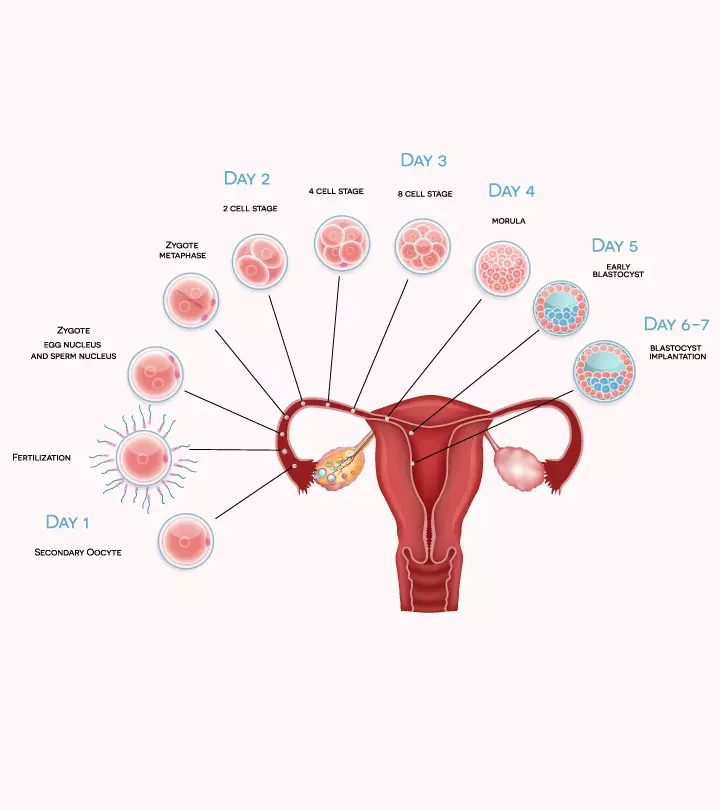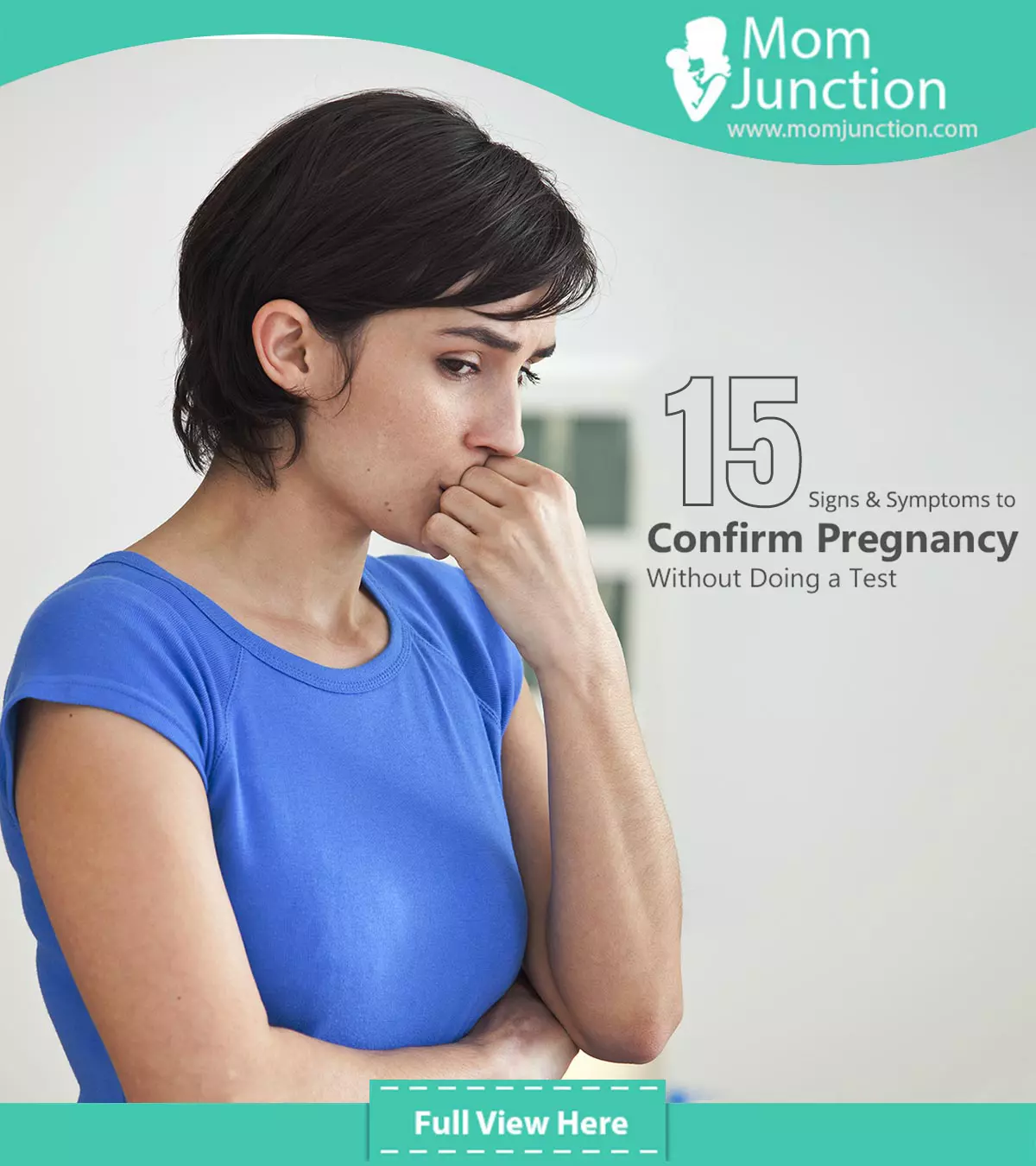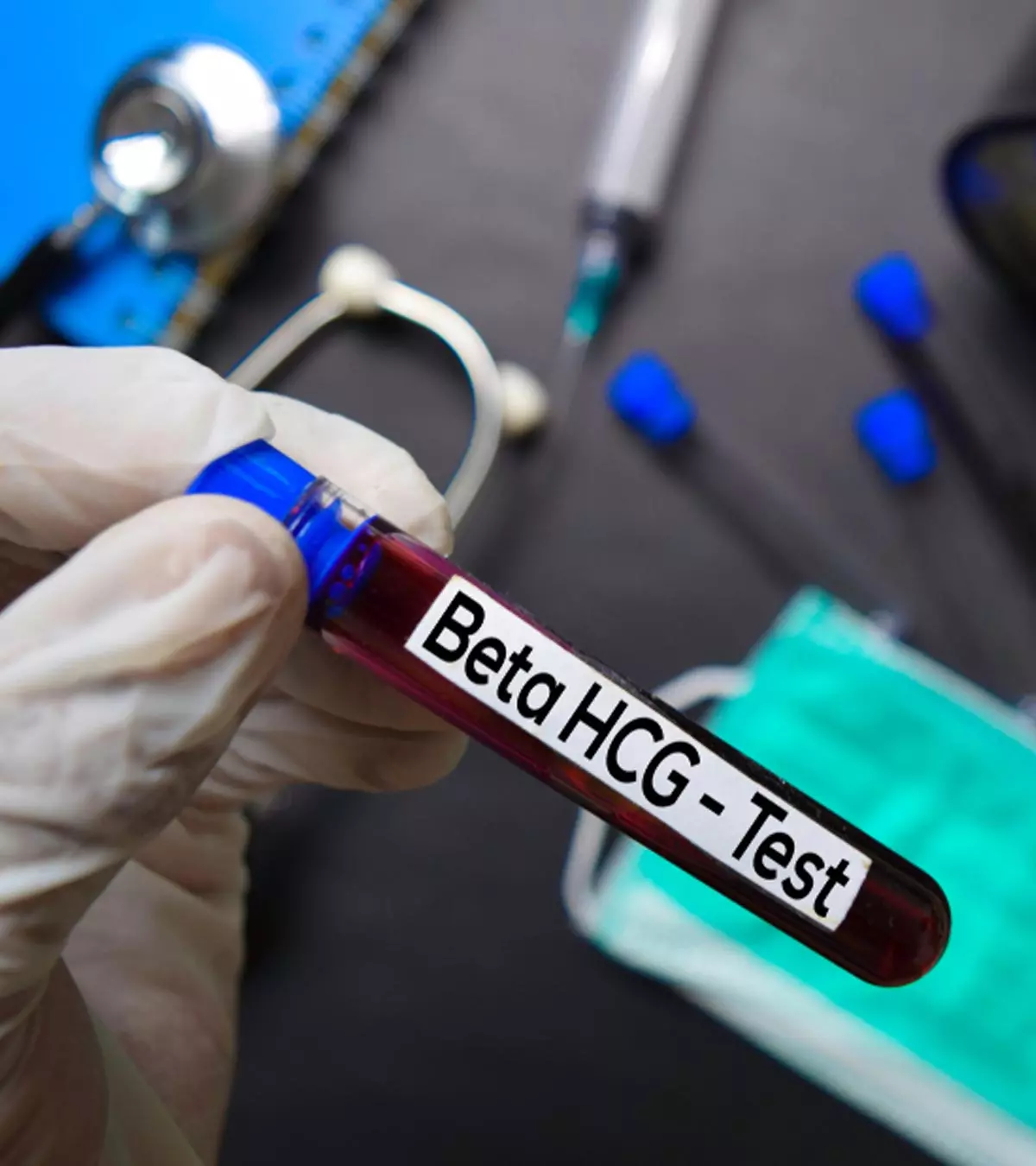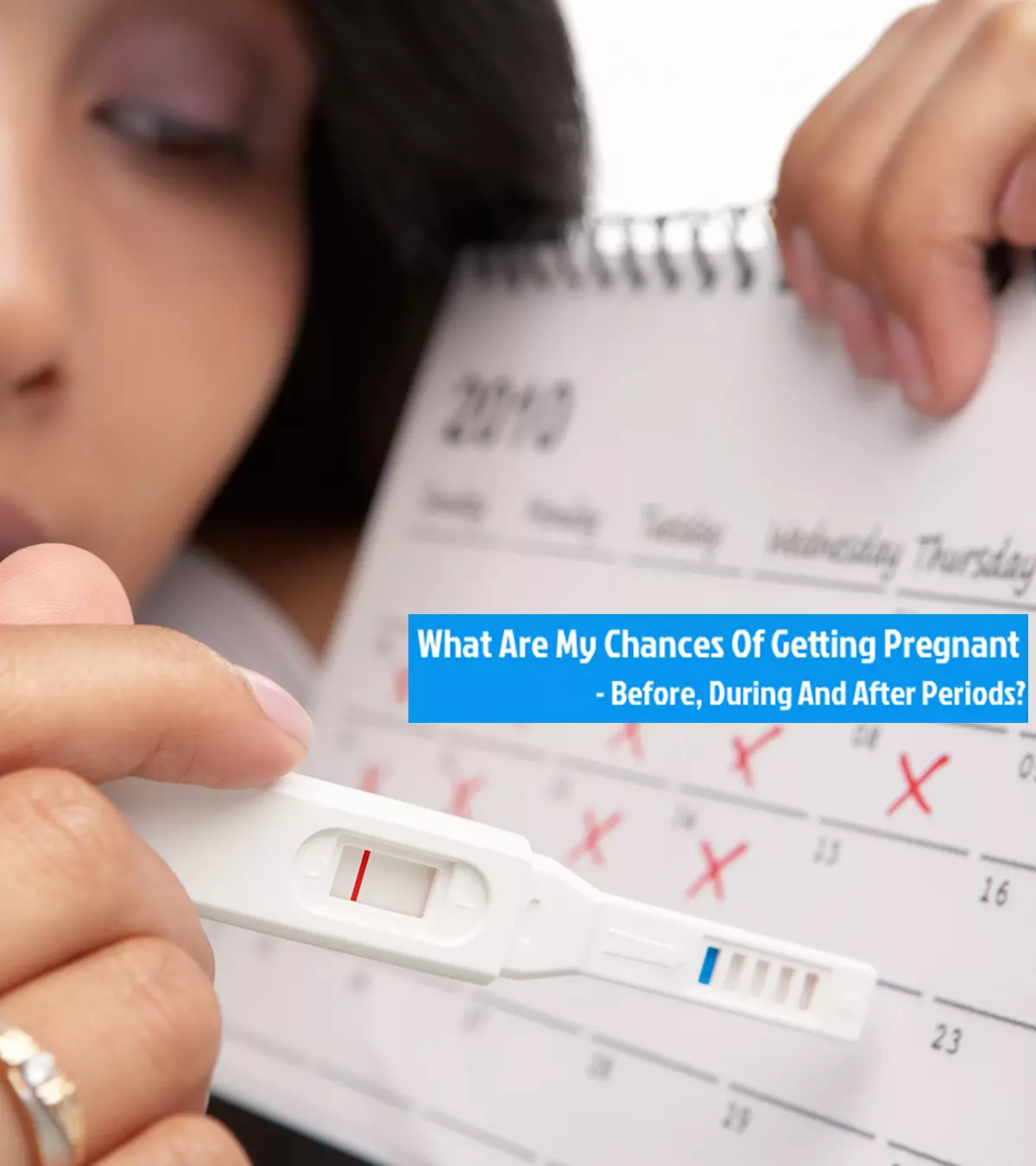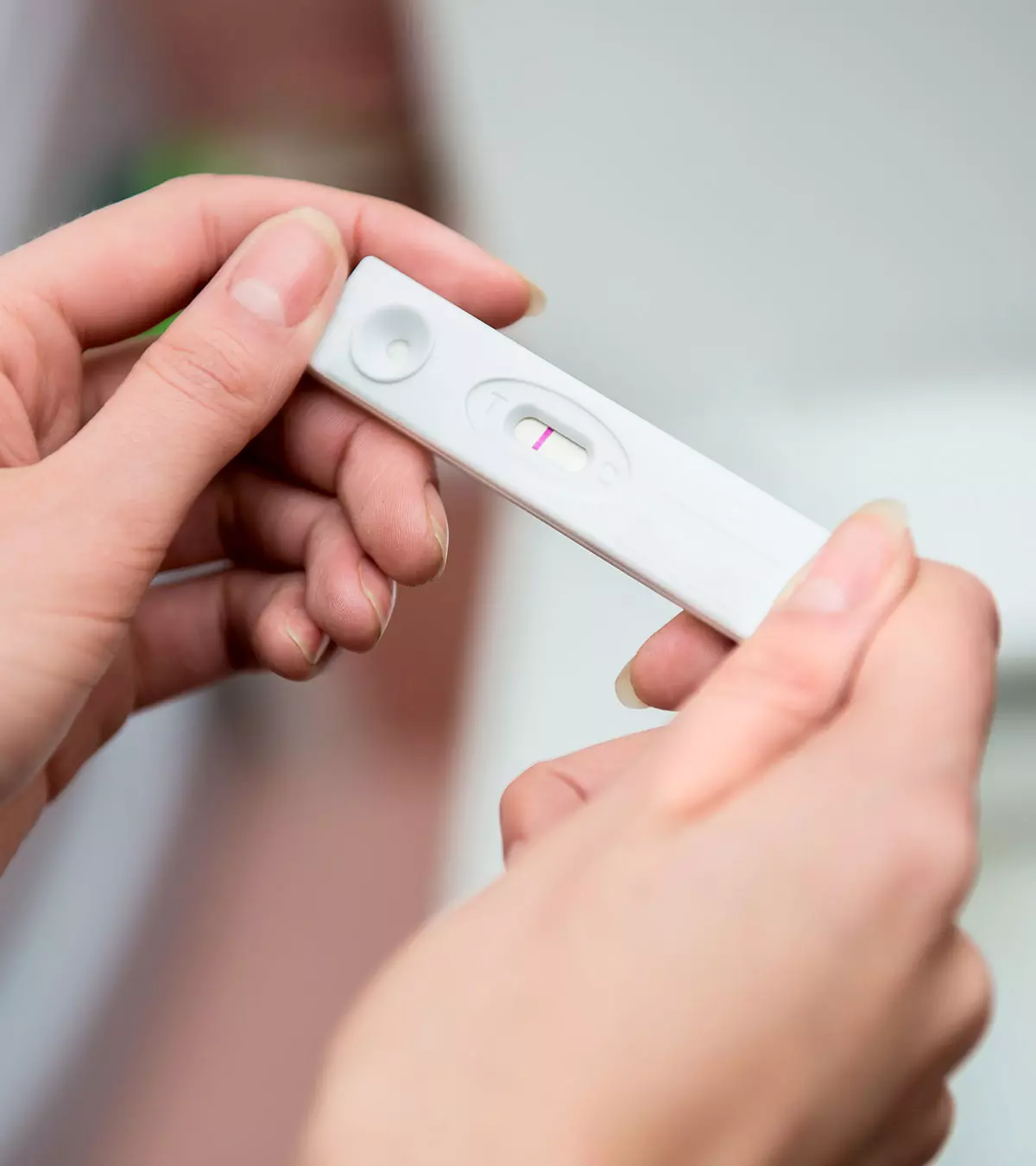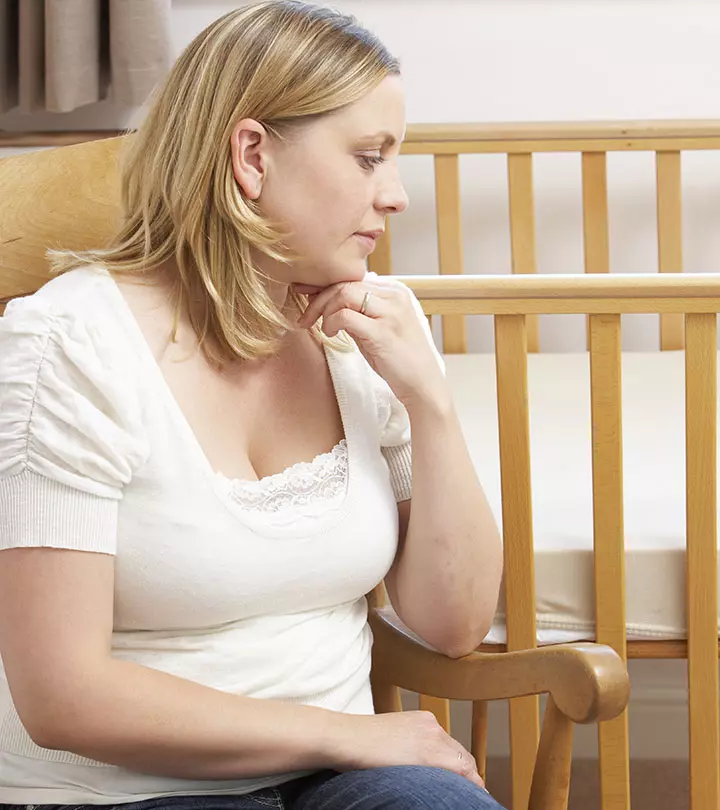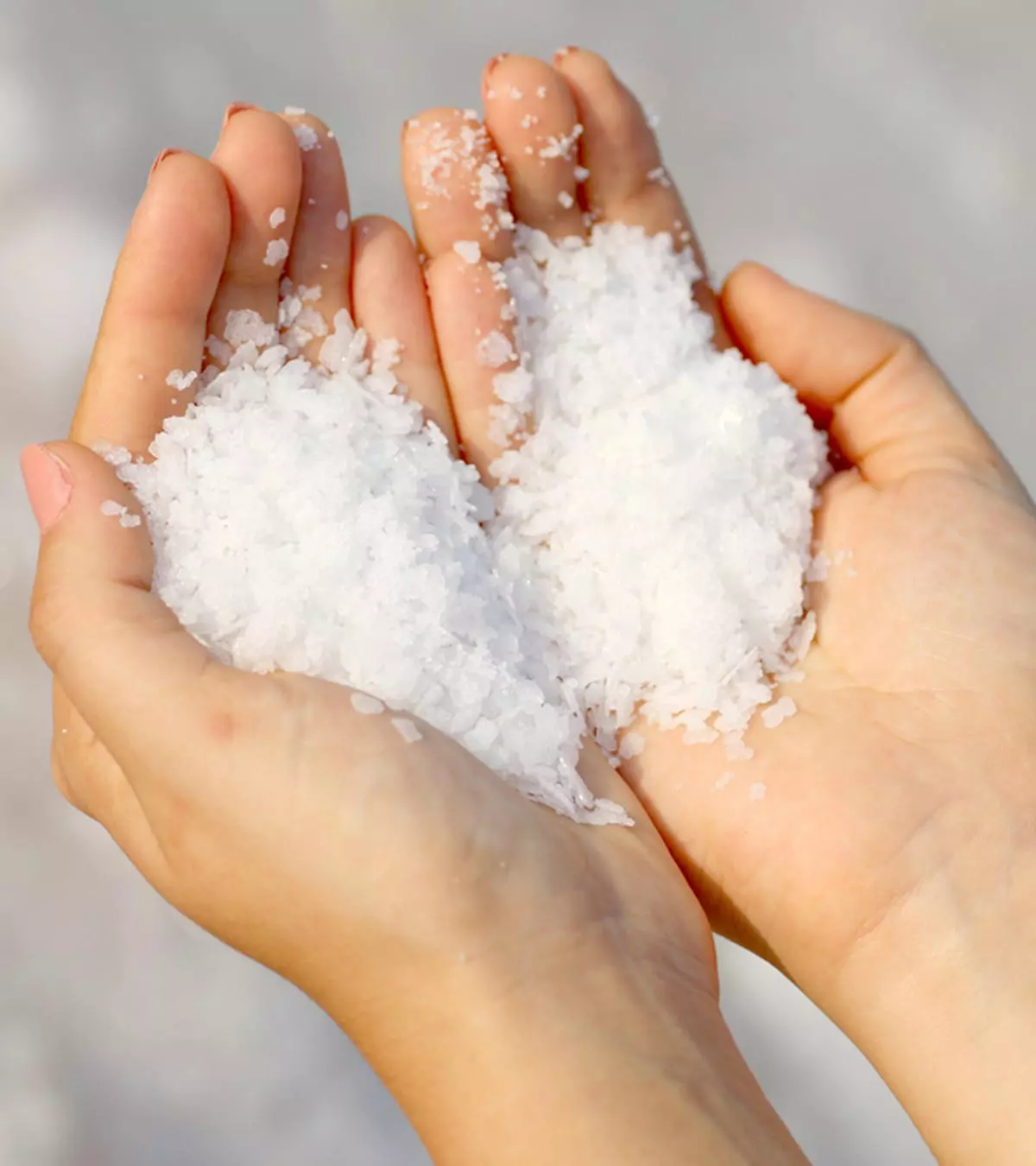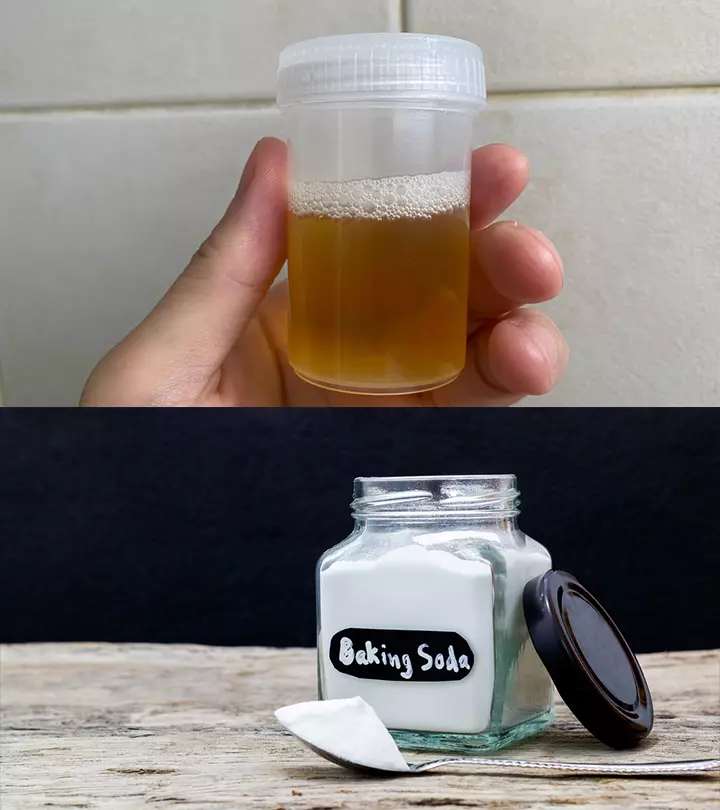
Image: Shutterstock

If you doubt you are pregnant but are hesitant to buy a pregnancy test kit at a pharmacy or visit a doctor for a checkup, then you may try this simple homemade pregnancy test with baking soda. This DIY (do-it-yourself) pregnancy test with baking soda may help determine if you have conceived or not. But, the baking soda pregnancy test is not 100% accurate and does not replace medical tests. However, if you are keen on trying it out, keep reading the post as we tell you about how the baking soda pregnancy test works, when and how you can perform this homemade test, and how to interpret the results.
Key Pointers
- Baking soda pregnancy test is a traditional home-based method of determining whether or not you are pregnant.
- It detects the presence of hCG in a pregnant woman’s urine sample.
- Household baking soda, two dry cups, and your urine sample are all you need for a baking soda pregnancy test.
- A week or more following your missed period is best to take a baking soda pregnancy test.
- But the baking soda pregnancy test’s accuracy is not wholly reliable.
Baking Soda Pregnancy Test
Baking soda has been used traditionally as a DIY or homemade pregnancy test by many across the world.
It is a simple, low-cost, and convenient home-based method to detect the hCG hormone (pregnancy hormone) in the urine. Find out how this simple everyday ingredient can tell you whether or not you have conceived using a urine test.
How Does It Work?
Human chorionic gonadotropin or hCG is present in the urine during early pregnancy (1). Baking soda can be used to check its presence in the urine. The reaction of baking soda with urine tells you whether or not hCG is present in it. If it is present, you are pregnant.
Keep reading this post to know how to perform this home-based test.
How To Perform This Test?
This test is simple, inexpensive, and can be done at home using common household items. For this DIY test, you would require:
- Baking soda
- Two dry cups, mark them as cup A and cup B
- A sample of fresh urine

Image: Shutterstock
Follow these steps to test for pregnancy:
- Collect urine in cup A. You may directly urinate into it
- Take cup B and add a spoon of baking soda
- Now add the mixture of cup B into cup A
- Wait for a few minutes to notice the reaction
Note: hCG is easily detected in the urine when it is fresh. Thus, use urine that has been in the bladder for several hours, preferably the first one in the morning (2).
 Quick tip
Quick tipInterpreting The DIY Pregnancy Test Results
Homemade pregnancy tests, like the baking soda method, rely on observing a chemical reaction, but they do not detect pregnancy hormones like clinical tests do. Here is how to interpret the results of this text:
- If you find a fizzy or bubbly reaction in the cup, it means the result is positive, which means you are pregnant.
- If there is no reaction in the cup, then the result is negative, which means you are not pregnant.
If you receive a positive result from a home pregnancy test, schedule an appointment with a healthcare provider to confirm the pregnancy and begin prenatal care. You should also stop consuming alcohol, tobacco, and other harmful substances.
Sometimes, doing the test at the wrong time could lead to a false-negative result, particularly if the test is performed before the body has produced enough hCG to be detected. This is often the case if the test is done too early after a missed period. Hence, it is essential to know when to perform the test to get the correct results.
When Should You Do The Test?
Your body produces hCG only after implantation, which occurs a week after ovulation. So, the best time to perform this do-it-yourself test is a week or more after your missed period. Doing the test early might give you a negative result. Also, consider using first-morning urine because it contains the highest concentration of hCG, making it more likely to yield an accurate result (3).
Is The Baking Soda Pregnancy Test Accurate?

Image: Shutterstock
There is no evidence to prove that the at-home pregnancy test using baking soda is accurate. Some women get correct results, while others may not. At times, you may get a negative result the first time, followed by a positive result the second time. So it can be said that the baking soda pregnancy test has 50% accuracy.
Many find comfort in homemade tests due to their accessibility and the desire for immediate answers. However, these tests are not scientifically validated or reliable for confirming pregnancy. Hence, it should not replace medically approved methods for confirming pregnancy. It is important to consult a doctor for proper clinical blood and urine tests and sonography. These test results can help predict how far along the pregnancy is.
 Quick fact
Quick factFrequently Asked Questions
1. How often should I repeat the baking soda pregnancy test?
It is advisable to retake the test a couple of times or use a traditional pregnancy test kit to confirm your pregnancy. Even if you get a positive pregnancy test result, schedule a prenatal appointment with your obstetrician/gynecologist to confirm your pregnancy.
2. What are the alternatives to a baking soda pregnancy test?
Pregnancy tests with sugar, toothpaste, and vinegar are alternatives to baking soda pregnancy test, but they lack scientific evidence. A commercial pregnancy test kit or consulting a healthcare professional is the most accurate and reliable option.
3. Are there any risks associated with the baking soda pregnancy test?
The baking soda pregnancy test is not a reliable or scientifically validated way of detecting pregnancy. Since it may give incorrect results, a false negative may postpone essential prenatal care or create stress, while a false positive can cause unnecessary confusion.
4. How does the accuracy of homemade pregnancy tests compare to commercial tests?
Homemade pregnancy tests, such as the baking soda test, often lack the scientific validation and accuracy of commercial tests, which are designed to detect hCG levels reliably.
A homemade pregnancy detection test with baking soda is not quite reliable. Yet, some women claim that the test gives correct results. Since the test is non-invasive, economic, and harmless, you can try it at home. However, don’t rely on its results for pregnancy confirmation. Instead, use a pregnancy kit at home or visit a doctor’s clinic for a checkup. Remember, pregnancy is a crucial period that needs utmost care right from the start. So opt for the most reliable and safest pregnancy test methods only.
Infographic: Pros And Cons Of A Baking Soda Pregnancy Test
Homemade pregnancy tests such as the baking soda test can give results within no time but are not always valid and trustworthy. If you wish to perform this test, this infographic details the pros and cons of this test to know before you decide on going ahead with it.
Some thing wrong with infographic shortcode. please verify shortcode syntaxReferences
- Human Chorionic Gonadotropin (HCG) Test.
https://www.uofmhealth.org/health-library/hw42062 - Pregnancy Tests.
https://my.clevelandclinic.org/health/diagnostics/9703-pregnancy-tests - How early can home pregnancy tests show positive results?
https://utswmed.org/medblog/home-pregnancy-tests/ - Pregnancy Test.
https://medlineplus.gov/lab-tests/pregnancy-test/#:~:text=When%20used%20correctly%2C%20home%20pregnancy,you%27ve%20missed%20a%20period.
Community Experiences
Join the conversation and become a part of our nurturing community! Share your stories, experiences, and insights to connect with fellow parents.
Read full bio of Dr. Umera Zakiahmed Saiyed
Read full bio of Ghazia Shah
Read full bio of Rebecca Malachi
Read full bio of Reshmi Das








